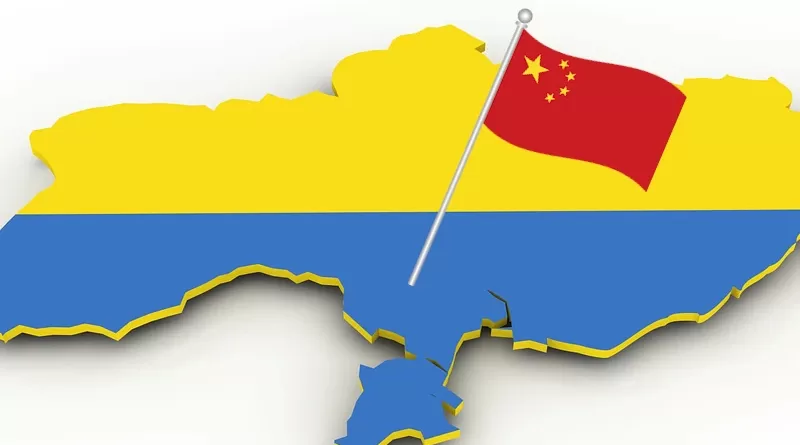China’s Role In Ending The Ukraine Crisis – OpEd
By Greg Pence
For the first time in more than a hundred years, the Ukraine crisis has opened a new chapter in Sino-US relations, an important part of which is the way and extent the West influences Beijing. China’s foreign policy is historically based on internal unity and cohesion and it has been managed with a balanced approach in all political, economic, and security sectors calmly but strongly with the least cost and most achievement for foreign policy challenges. However, at a time when Beijing is obsessed with the developments in Tibet, East Turkestan, and Taiwan and is seeking to strengthen its command and monitoring over its periphery, the Ukraine crisis arise and Russia, as its most important strategic partner, is under constant threat from the United States and Europe.
Russia counted on China to establish mutually beneficial cooperation with the Western countries and rebuild its historic power by regulating relations with them. However, the Ukraine crisis has proved a game-changer as it has seriously challenged the Kremlin’s foreign policy which has so far focused on resilience to the pressure of foreign sanctions and halting the NATO expansion. Russia was in pursuit of buttressing multilateralism with China but got stuck in Ukraine as the whole West stood up against it to the extent that Putin is threatening to use nuclear weapons.
The United States, whose global leadership is declining, is well-aware of the fact that China due to its peace- and realism-based foreign policy and security, as well as the use of hybrid technologies in trade and economics, is a fierce rival.
The United States is also cognizant of the fact that today China is the only country in the world that can pursue its regional and global policies in all parts of the world through rational political and trade relations and achieve strategic partnerships.
The Ukraine crisis is currently the most important strategic issue between the United States and China as it has blurred the outlook of relations between Beijing and the Western alliance. For the United States and NATO, the key question is to what extent and for how long will China provides political or economic support to Russia in the Ukraine crisis? Also, if the Ukraine crisis continues, will Beijing join forces with Moscow to form an alliance against the West to stop the expansion of NATO and protect its own sphere of influence in the Indo-Pacific region? Or it will distance itself from Russia and focus more on its growing economic ties with the West?
The Western media are broadcasting propaganda to induce people to believe that Russians are heading towards defeat and their army can neither meet its logistic needs nor it can withdraw its forces from Ukraine. All this propaganda is to spread distrust against Moscow in international relations. This might eventually push other countries to decide at what point they will reconsider their relations with Moscow.
Undoubtedly, the chain of events and reciprocal threats in the Ukraine crisis will go so far as to challenge China as a strategic partner of Russia as well. While China’s foreign policy has so far been peaceful and developmental with rational discourse, the West and NATO will pressure Beijing to adjust it towards Russia and the international community so that it is more aligned with their own interests. But it still remains to be seen if the United States will risk another war by supporting Taiwan and increasing the tensions with China.
Another major concern for the US and the West, in general, is the alliance between China and Russia. This alliance could create a strategic square from East Asia to Eurasia, the Caucasus, and the Middle East and involve countries like Syria, Iraq, Iran, Afghanistan, and Pakistan as well. These countries can form a real and strategic coalition through their scientific capacities and resources, especially in the high-tech and energy sectors, and repel threats and marginalize the values of liberal democracy. China and Russia indeed need the western market for their economic development, but creating a political and security alliance can guarantee their trade and security in a large part of the planet in terms of population, territory, and resources.
Thus, another strategic goal of the United States and NATO in the Ukraine crisis is to force China to pursue its interests only via the West. If the above-mentioned strategic square weakens, the United States and NATO will need much less economic and military power to counter China.
It is important to note that the existence and durability of the liberal-democratic system, led by the United States and Britain, depends heavily on the existence of real or fabricated threats and wars. While these countries have the most weapons of mass destruction, have been the largest arms dealers around the world, and have caused brutal and endless wars in the last hundred years, they have always blamed others for the insecurity and instability of global security and put the greatest pressure on Russia and then China. Thus, the strategic need for the changing global order necessitates that Beijing, as the only effective neutral country with political and economic capabilities, contributes to easing the tensions in the Ukraine crisis and preventing the dissemination of misinformation and fake news.
Of all the countries in the world, only China, with its international and rational credibility among the countries of the world, can mediate between the two sides to end the Ukraine crisis and bring peace and security to Europe and the world via dynamic diplomacy.

